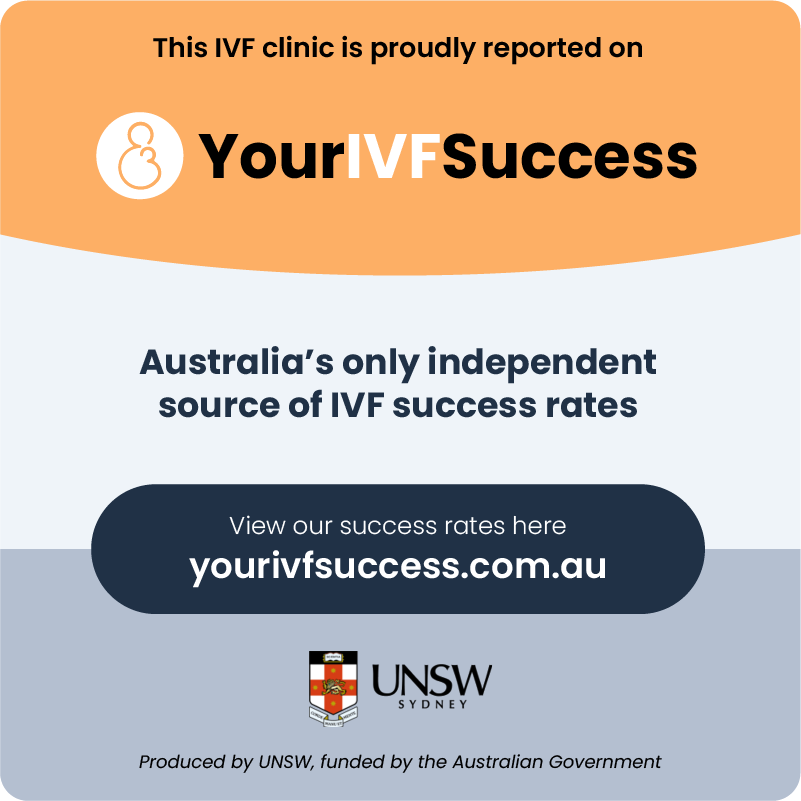Risks from Assisted Reproduction (IVF)
Assisted Reproduction is a safe and effective way of getting pregnant and having a baby. There are, however uncommon, but important side effects which can occur.
Multiple pregnancy
Mutliple pregnancy with twins carries a ten fold increase in the likelihood of complications in pregnancy.
At Ballarat IVF, we rarely transfer more than one embryo for a women having IVF.
Despite only performing single embryo transfers, one in thirty IVF pregnancies are twin pregnancy, due to the embryo dividing .
Ovarian Hyperstimulation Syndrome (OHSS)
OHSS is an uncommon complication that can be serious. It can occur after treatment with Gonadotrophins(FSH) or Clomiphene Citrate. OHSS is more likely to occur if a woman develops a large number of follicles, but it can rarely occur even if a small number of follicles develop.
The key risk factor is exposure of the woman to HCG ( a form of trigger injection)
Who is at risk?
Women who have Polycystic Ovarian Syndrome (PCOS), are young, are thin, have a relatively high AMH level, or who have experienced OHSS previously.
Severe OHSS
This is an uncommon condition, but can be serious. A woman can become quite ill, and experience significant pain. Women with severe OHSS require admission to hospital, and often to Intensive Care. Severe OHSS causes swelling of the abdomen and nausea, can affect kidney function and, rarely, can lead to the development of clots in the legs or lungs.
How do we reduce the risk of OHSS?
At Ballarat IVF, we do the following.
- Diagnose PCOS
- Check a woman’s AMH level before starting Gonadotrophins
- Use relatively low doses of FSH during ART treatment cycles
- Check Oestrogen levels during ART treatment
- Avoid using HCG for trigger injections during risky situations
- We don’t use Clomiphene
- We use Letrozole for ovulation induction
- We use GnRh Agonist triggers during IVF cycles when needed
- Sometimes we cancel the IVF cycle and not collect the eggs
What do we do if signs of OHSS develop?
- Talk to you about the concerns
- Avoid giving you HCG as a trigger injection
- Freeze all embryos from the treatment cycle to avoid pregnancy
- Our nurses and doctors will Monitor your condition
- Prescribe medication to reduce the risk of getting OHSS
- Occasionally arrange for you to be admitted to hospital
- Ensure you have a clear plan for your next treatment cycle.
Ovarian Abscess
In 1 in 1,000 cases bacteria are introduced into the ovary during egg collection This is a serious complication. It occurs mainly in women who have a history of endometriotic cysts on their ovaries.
Pelvic Infection
This is very uncommon – less than 1 in 1,000 cases. Some women have had a pelvic infection which may have contributed to their infertility by causing damage to the fallopian tubes. Some of these women may experience a recurrence of the infection following egg pick up.
How do we reduce the risk of infection?
At Ballarat IVF, we do the following:
- Use care during procedures
- Ensure that severe endometriosis is diagnosed and treated before Assisted Reproduction starts
- Use antibiotics during procedures for women at risk of pelvic infection
- Ensure we are contactable should any problems occur following procedures
Risks of Anaesthesia
When eggs are collected in an IVF cycle, a woman needs anaesthesia. The anaesthetic is provided by a Specialist Anaesthetist or a doctor with Special expertise .Anaesthetics are very safe procedures, but complications can rarely occur, such as a reaction to the anaesthetic drugs, and a 1 in 100,000 chance of death.
Locations
Abbreviations have been used throughout this website. Please refer to the glossary for full terminology.
Ballarat IVF acknowledges the Traditional Custodians of the land we live and work on, the Wadawurrung and Dja Dja Wurrung People, and recognises their continuing connection to the land and waterways.
© 2025
All Rights Reserved | Ballarat IVF
© 2025
All Rights Reserved | Ballarat IVF
site by mulcahy & co marketing


